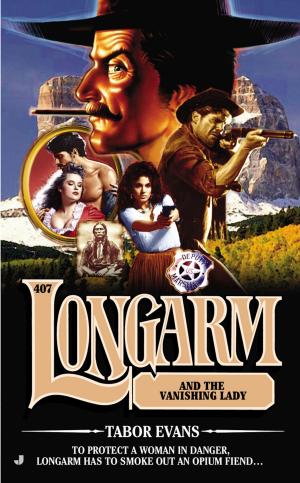MacArthur's Spies
The Soldier, the Singer, and the Spymaster Who Defied the Japanese in World War II
Nonfiction, History, Asian, Southeast Asia, Military, Strategy, World War II| Author: | Peter Eisner | ISBN: | 9780698407527 |
| Publisher: | Penguin Publishing Group | Publication: | May 2, 2017 |
| Imprint: | Penguin Books | Language: | English |
| Author: | Peter Eisner |
| ISBN: | 9780698407527 |
| Publisher: | Penguin Publishing Group |
| Publication: | May 2, 2017 |
| Imprint: | Penguin Books |
| Language: | English |
**"MacArthur's Spies reads like Casablanca set in the Pacific, filled with brave and daring characters caught up in the intrigue of war—and the best part is that it's all true!" —Tom Maier, author of Masters of Sex
A thrilling story of espionage, daring and deception set in the exotic landscape of occupied Manila during World War II. **
On January 2, 1942, Japanese troops marched into Manila unopposed by U.S. forces. Manila was a strategic port, a romantic American outpost and a jewel of a city. Tokyo saw its conquest of the Philippines as the key in its plan to control all of Asia, including Australia. Thousands of soldiers surrendered and were sent on the notorious eighty-mile Bataan Death March. But thousands of other Filipinos and Americans refused to surrender and hid in the Luzon hills above Bataan and Manila. *MacArthur's Spies *is the story of three of them, and how they successfully foiled the Japanese for more than two years, sabotaging Japanese efforts and preparing the way for MacArthur’s return.
From a jungle hideout, Colonel John Boone, an enlisted American soldier, led an insurgent force of Filipino fighters who infiltrated Manila as workers and servants to stage demolitions and attacks.
“Chick” Parsons, an American businessman, polo player, and expatriate in Manila, was also a U.S. Navy intelligence officer. He escaped in the guise of a Panamanian diplomat, and returned as MacArthur’s spymaster, coordinating the guerrilla efforts with the planned Allied invasion.
And, finally, there was Claire Phillips, an itinerant American torch singer with many names and almost as many husbands. Her nightclub in Manila served as a cover for supplying food to Americans in the hills and to thousands of prisoners of war. She and the men and women who worked with her gathered information from the collaborating Filipino businessmen; the homesick, English-speaking Japanese officers; and the spies who mingled in the crowd.
Readers of Alan Furst and Ben Macintyre—and anyone who loves Casablanca—will relish this true tale of heroism when it counted the most.
**"MacArthur's Spies reads like Casablanca set in the Pacific, filled with brave and daring characters caught up in the intrigue of war—and the best part is that it's all true!" —Tom Maier, author of Masters of Sex
A thrilling story of espionage, daring and deception set in the exotic landscape of occupied Manila during World War II. **
On January 2, 1942, Japanese troops marched into Manila unopposed by U.S. forces. Manila was a strategic port, a romantic American outpost and a jewel of a city. Tokyo saw its conquest of the Philippines as the key in its plan to control all of Asia, including Australia. Thousands of soldiers surrendered and were sent on the notorious eighty-mile Bataan Death March. But thousands of other Filipinos and Americans refused to surrender and hid in the Luzon hills above Bataan and Manila. *MacArthur's Spies *is the story of three of them, and how they successfully foiled the Japanese for more than two years, sabotaging Japanese efforts and preparing the way for MacArthur’s return.
From a jungle hideout, Colonel John Boone, an enlisted American soldier, led an insurgent force of Filipino fighters who infiltrated Manila as workers and servants to stage demolitions and attacks.
“Chick” Parsons, an American businessman, polo player, and expatriate in Manila, was also a U.S. Navy intelligence officer. He escaped in the guise of a Panamanian diplomat, and returned as MacArthur’s spymaster, coordinating the guerrilla efforts with the planned Allied invasion.
And, finally, there was Claire Phillips, an itinerant American torch singer with many names and almost as many husbands. Her nightclub in Manila served as a cover for supplying food to Americans in the hills and to thousands of prisoners of war. She and the men and women who worked with her gathered information from the collaborating Filipino businessmen; the homesick, English-speaking Japanese officers; and the spies who mingled in the crowd.
Readers of Alan Furst and Ben Macintyre—and anyone who loves Casablanca—will relish this true tale of heroism when it counted the most.















